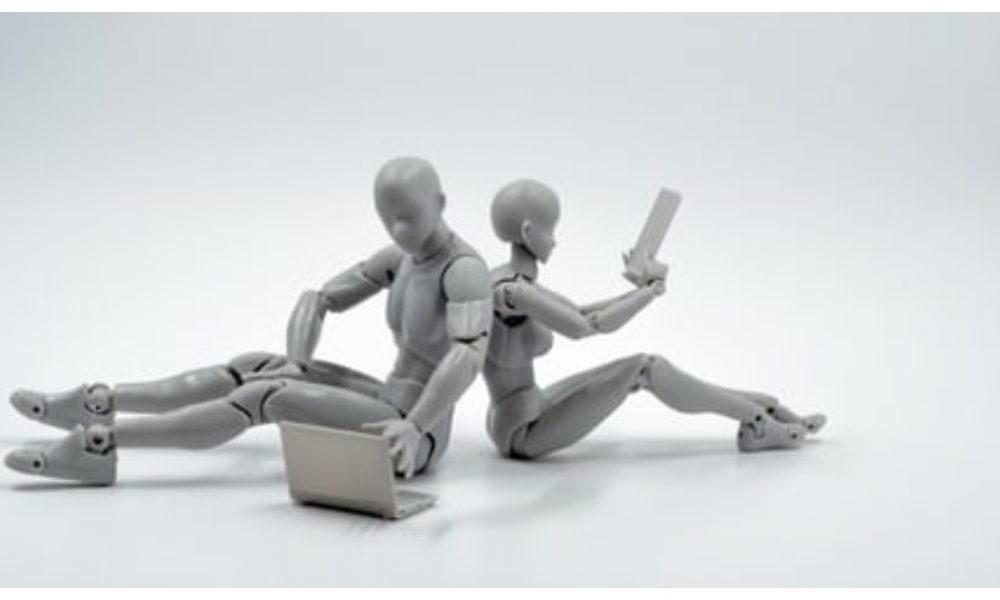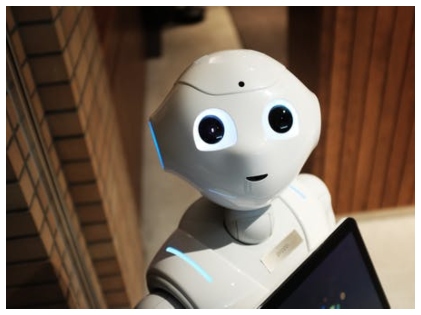
Can Robots Replace Mental Health Professionals In The Near Future?

 Robots are the future. You might soon see robots working as factory workers, umpires, bookkeepers, and legal assistants in the times to come. This implies that people might lose their jobs in the next two decades and that’s alarming. However, what about those jobs which need a human touch? Are they safe?
Robots are the future. You might soon see robots working as factory workers, umpires, bookkeepers, and legal assistants in the times to come. This implies that people might lose their jobs in the next two decades and that’s alarming. However, what about those jobs which need a human touch? Are they safe?
As per the new innovations, artificial intelligence or AI has already started to invade into the mental and physical health care sector. People have always been satisfied with receiving mental health treatment from humans who can breathe. Can AI and robots fill up that space? Can an unfeeling robot replace experienced therapists and counselors? The following points will discuss that.
The Story Of Woebot
AI has made some remarkable progress in recent times. For example Woebot, a new program from the researchers at Stanford. In case you don’t know Woebot is, it is a chatbot therapist. Woebot administers CBT or Cognitive Behavioral Therapy. Once people observe all their negative thoughts in an unbiased manner, they begin to identify the patterns and triggers and attempt to preempt them.
Woebot intimates the user’s daily basis through messages. Since Woebot is a robot, it takes a user’s response into account and decodes them over time. Aside from that, it also recognizes any mood change and can put forth suggestions just like a therapist.
What Can The Woebot Do?
 According to experts, the Woebot helps people set aside to get past their fears of being stigmatized. It helps them get proper mental health care in a way that they are familiar with. And this happens without revealing the patient’s identity. People who have certain apprehensions in sharing their feelings with their close ones and struggle on that front have a certain comfort level in confiding in Woebot.
According to experts, the Woebot helps people set aside to get past their fears of being stigmatized. It helps them get proper mental health care in a way that they are familiar with. And this happens without revealing the patient’s identity. People who have certain apprehensions in sharing their feelings with their close ones and struggle on that front have a certain comfort level in confiding in Woebot.
Though Woebot is not an exact substitute for face-to-face therapy and everyone doesn’t have the money or time to visit an experienced therapist, researchers believe that these things can be beneficial. According to research, Woebot can be helpful in diminishing depression and anxiety in people.
The Story Of Ellie
If you refer to the past history, this, in all probability, is not the first time a robotic therapist has been created. Ellie the robot was created to help seniors suffering from post-traumatic stress disorder. It listens to people without judging them. Therefore, people are more confident in sharing their feelings with them. Ellie has the power to analyze facial expressions, eye gaze, voice tone, and head gestures and detect post-traumatic stress disorder in individuals who have come for help.
However, there are a couple of catches here. Sometimes people start a therapy session but lack the motivation to continue with the session, thus resisting an improvement in their behavior or a change in their environment. It is tough to infer who will persist with the therapy or who won’t.
The Silver Lining
 However, experts are finding out ways to motivate people to help them stick to the entire process religiously. Users get the necessary encouragement to traverse through environments, virtual in nature. During the process, the scenarios started getting harder from one phase to another and users have to apply more energy.
However, experts are finding out ways to motivate people to help them stick to the entire process religiously. Users get the necessary encouragement to traverse through environments, virtual in nature. During the process, the scenarios started getting harder from one phase to another and users have to apply more energy.
An individual’s performance allows researchers to measure their motivation levels and introduce mental health treatment that keeps them committed. A very difficult phase of treating individuals during mental health issues is to identify those intending to commit self-harm. Suicidal thoughts don’t erupt from an isolated incident like loss of a job, death of a dear one, or a breakup in a relationship.
Though this might be an unpredictable situation for clinicians, scientists are working day and night how machine learning might prove to be indispensable. By scanning a bulk of data and deriving patterns that humans might overlook, robots could spot patients with suicidal tendencies. Having said all of these, robots are all geared up to replace the therapists. The rapist but, they are unable to connect with clients genuinely and help individuals come pit of their present state of mind. As of now, only humans can accomplish the task. So, mental health professionals have little to worry about. They can be confident about not losing their jobs to the machines anytime soon!
More in Mental Health
-
`
5 Reasons Why Dad’s Side of the Family Misses Out
Family bonds are intricate and multifaceted, often creating a unique tapestry of connections. However, many people notice a peculiar trend: stronger...
July 12, 2024 -
`
A Quick Guide on How to Get Short-Term Disability Approved for Anxiety and Depression
Living with anxiety or depression poses unique challenges, particularly in the workplace, where stress can exacerbate symptoms. For many, short-term disability...
July 5, 2024 -
`
Why Do People Feel Sleepy After Eating?
Is feeling sleepy after eating a sign of diabetes? Well, not directly. There are many reasons why you feel drowsy after...
June 20, 2024 -
`
What Is High-Functioning Depression? Symptoms and Treatment
High-functioning depression may not be a term you hear every day, but it’s a very real and challenging experience for many....
June 13, 2024 -
`
Kelly Clarkson’s Weight Loss Ozempic Journey – Debunking the Rumors
In a refreshing moment of transparency, Kelly Clarkson, the beloved singer and talk show host, sheds light on her remarkable weight...
June 3, 2024 -
`
What Is the Best Milk for Gut Health and Why?
In recent years, the milk section at the grocery store has expanded far beyond the traditional options. While cow’s milk has...
May 30, 2024 -
`
Do Dental Implants Hurt? Here’s All You Need to Know
When you hear “dental implants,” you might wince at the thought of pain. But do dental implants hurt as much as...
May 24, 2024 -
`
5 Key Differences Between A Psych Ward & A Mental Hospital
Curious about the differences between a psych ward and a mental hospital? You are not alone. With the mental health conversation...
May 16, 2024 -
`
It’s Official! “Selling Sunset’s” Christine Quinn & Husband Christian Dumontet Are Parting Ways
Have you ever found yourself unexpectedly engrossed in the personal lives of celebrities, especially when their stories take dramatic turns? Well,...
May 9, 2024










You must be logged in to post a comment Login